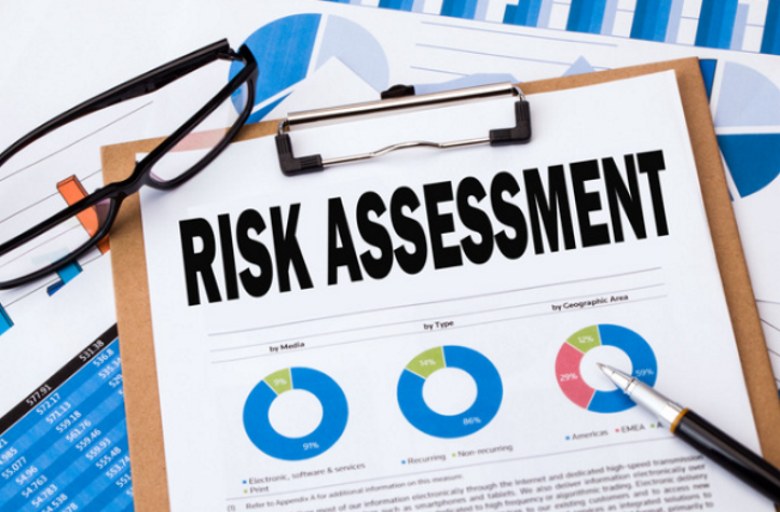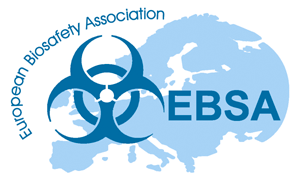Past EBSA courses
-
 24 September 2025
24 September 2025ISO/TS5441:2024 Competence Requirements for Biorisk Management Advisors: what it is, how to use it
Read moreIn spring 2024, the International Organization for Standardization, ISO, published the technical specification ISO/TS5441:2024 Competence Requirements for Biorisk Management Advisors (BMA). ISO/TS5441 compiles all information on required knowledge, skills and experience a biorisk management advisor should have to provide competent advice to an organization under a given context, that is, based on the types of activities with biological material and their risk. ISO/TS5441 helps you to demonstrate and update your competence and it supports organization on how to define their competence need and how to choose a BMA. ISO/TS5441 has been designed by biosafety experts from different countries around the globe based on consensus, thus being a truly international specification.
The course will inform BMA of all degree of expertise and fields of activities on how ISO/TS5441 supports biorisk management advice activities. ISO/TS5441 can be purchased from national standardization organisations. The document cannot be shared as proprietary. However, this is not a prerequisite for attending the course.
-
 23 April 2024
23 April 2024The basics of risk assessment
Read moreThis online course is designed to provide attendees with a basic knowledge and requirements to complete risk assessments of laboratory activities.
-
 19 October 2023
19 October 2023Demystifying ABS, Nagoya Protocol and the EU ABS Regulation – what you need to know when importing and using genetic resources.
Read moreA 2,5 hour online course (including a break and question session)
Instructor: Dominic Muyldermans
Description: The principles of Access and Benefit Sharing (ABS) were first recognised under the Convention on Biological Diversity, refined in the Nagoya Protocol and are further implemented in national ABS laws. In EU an additional compliance regulation applies.
-
 19 April 2023
19 April 2023Pre conference course F. Introduction to Human Factors in a Laboratory or scientific facility
AthensRead moreInstructors: Adam Stevenson and Wendy Shell
Aim: To be aware of human factors and how to take account of such in a laboratory or in vivo containment facility. -
 19 April 2023
19 April 2023Pre conference course C. Recombinant virus and viral vectors for research, gene therapy and vaccination: “GMO or not? Safe or not? Manageable or not?
AthensRead moreThere are a variety of investigational human and veterinary medicinal products consisting of or containing GMOs. GMOs for human medicines may include the following: human cells modified ex vivo; vaccines; recombinant virus-based vectors, including those containing genome editing nucleic acid sequences (which may also be delivered non-virally) and bacterial vectors.Medicinal products based onmRNA are on the rise. One need to define which constructs are still GMOs or not, which constructs are less or more hazardous than the wildtype virus, they are derived from, and which might serve as agent to harm others. How are people and the environment protected when they are widely used, also outside controlled laboratory settings. There is guidance and regulation. Which ones to apply is the one hundred Euroquestions.
-
 19 April 2023
19 April 2023Pre conference course B. An introduction course on biosafety (for a beginner level, WHO the LBM)
AthensRead moreThe role of a biosafety professional (BSP) within an institution is a challenging position. In addition, a BSP very often plays the interface between different activities within a facility including animal handling, engineering, maintenance and cleaning.
-
 18 April 2023
18 April 2023Pre conference course G. Operations, Maintenance and Management of Containment Level 2/3 Facilities
AthensRead more- Essential elements of and metholodolgies to perform risk assessment
- Assessing the risk of biological materials (microorganisms, cells, tissues)
- Evaluating the risk of procedures/activities
- Defining measures to control/minimize the risk (containment, GMT, PPE, training)
-
 18 April 2023
18 April 2023Pre conference course H. Tips for the successful evidence-based decontamination of contained use laboratories using liquid and gaseous disinfectants
AthensRead moreThe application of appropriate decontamination methods is the key element in reducing surface contamination in the laboratory to prevent laboratory-acquired infections and cross contamination in the laboratory.
-
 18 April 2023
18 April 2023Pre conference course E. The world of infection - working with infected animal models
AthensRead moreWorking with an animal model of infection means introducing an additional risk into the infection chain.
Not only the animals need to be handled appropriately to reduce a potential risk to the scientist, the equipment also plays a major role in minimising risk during individual infection experiments.
Infection models with obligate pathogenic human germs must be treated carefully and calmly. The 3Rs of laboratory animal science are not only a guarantee for ethically sound experiments, but also serve the safety of the researchers.
This course is rated as advanced. Therefore basic knowledge of Biosafety is a prerequisite as well as initial knowledge in working with animals.
